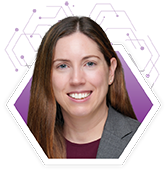2 EASY WAYS TO REGISTER

Religious Discrimination and Accommodation in Your Agency:
Complying With Title VII and Trump Administration Policies
Presented by Deryn Sumner, Esq.
Wednesday | March 25, 2026 • 12 - 1:30 p.m. ET
REGISTER NOWThe Trump administration has stated its intention to maximize religious expression and accommodation for religious practices that conflict with work requirements – a significant change that federal practitioners must understand and be prepared to address.
Experienced EEO attorney Deryn Sumner will detail all you need to know about this evolving landscape, starting with an overview of Title VII’s protections against religious discrimination, including disparate treatment, harassment, and the need to provide religious accommodation. You’ll also find out how undue hardship applies to religious accommodation, supported by recent EEOC case examples.
Along with learning how to factor recent OPM memos on religious accommodation and expression into agency EEO efforts, you’ll gain best practices to:
- Properly respond to religious accommodation requests, including considering telework, flexible schedules, leave options, and shift swapping
- Determine if a requested religious accommodation is an undue hardship under Groff v. U.S. Postal Service
- Evaluate when considerations about coworkers might be relevant to the undue hardship analysis
- Apply recent EEOC decisions addressing religious accommodation to your decision-making
- Determine if permissible religious expression has become unlawful religious harassment
- And more!
And with time for Q&A, you can get this expert’s answers to your specific questions.
Meet Your Trainer
Deryn Sumner, Esq., is a Partner at Gilbert Employment Law, as well as Co-Chair of the firm's Federal Sector EEOC Practice Group. She focuses her practice on representing federal employees and agencies before the EEOC and has worked on hundreds of cases involving claims of employment discrimination on the basis of disability, race, age, religion, retaliation, and other bases. She also has experience representing employees and agencies in cases of whistleblower retaliation and adverse action challenges before the MSPB. Ms. Sumner is the co-author of several books on federal sector employment law.
Ms. D’Agostino is a popular presenter of LRP Federal Webinars and is a frequent speaker at LRP’s annual FDR TrainingSM attended by federal government employees from agencies nationwide.
Who Should Attend
- EEO program officials
- EEO directors and civil rights practitioners
- EEO specialists
- EEO counselors
- Attorneys
- Agency representatives
- HR professionals
Registration Information Main Site (required for Additional Site registrations): $295 per connection
Additional Site for Teleworker: $115 per connection
REGISTER NOW

Penalty Determinations: How the 2026 MSPB Impacts Your Douglas Factors Analysis
Presented by Robert Erbe, Esq.
Wednesday | April 29, 2026 • 12 - 1:30 p.m. ET
REGISTER NOWNow that the MSPB has two members of the same political party, the board’s decisions related to penalties may take on a new look as it interprets the Douglas factors a bit differently. In this live webinar, noted Douglas expert Robert Erbe will share the new MSPB’s philosophy and how it is reviewing agencies’ Douglas factors analyses.
Mr. Erbe will explain the Douglas factors analysis that must be conducted, covering how common mitigating, aggravating, and neutral factors should be weighed, and provide guidance on trouble areas where deciding officials frequently make critical errors that could lead a penalty to be overturned. Plus, you’ll be alerted to recent trends in board decisions that you need to be aware of — and what they mean to you — involving deference to deciding officials, comparator standards, serious misconduct, and clarity of notice.
You’ll leave this training equipped to:
- Conduct a proper Douglas factors analysis specific to each factor that applies
- Spot problematic penalty practices during the discipline process
- Recognize and remedy when an unnoticed aggravating factor could result in a due process violation
- Determine which mitigating factors cannot be ignored
- Identify how similarly situated employees will be compared
- And more
Meet Your Trainer
Robert Erbe has been practicing federal sector labor and employment law for more than 25 years. Currently, he is in private practice primarily representing the National Border Patrol Council. During his federal service, he handled more than 100 MSPB appeals for numerous agencies. He is considered an expert on the Douglas factors as well as MSPB practice and procedure. He also writes the “Discipline Advisor” column for cyberFEDS® and has extensive experience as a federal employment law trainer.
Who Should Attend
- Employee relations specialists
- Labor relations specialists
- HR specialists
- Agency attorneys
- Deciding officials
- Union/employee representatives
Registration Information Main Site (required for Additional Site registrations): $295 per connection
Additional Site for Teleworker: $115 per connection
REGISTER NOW
